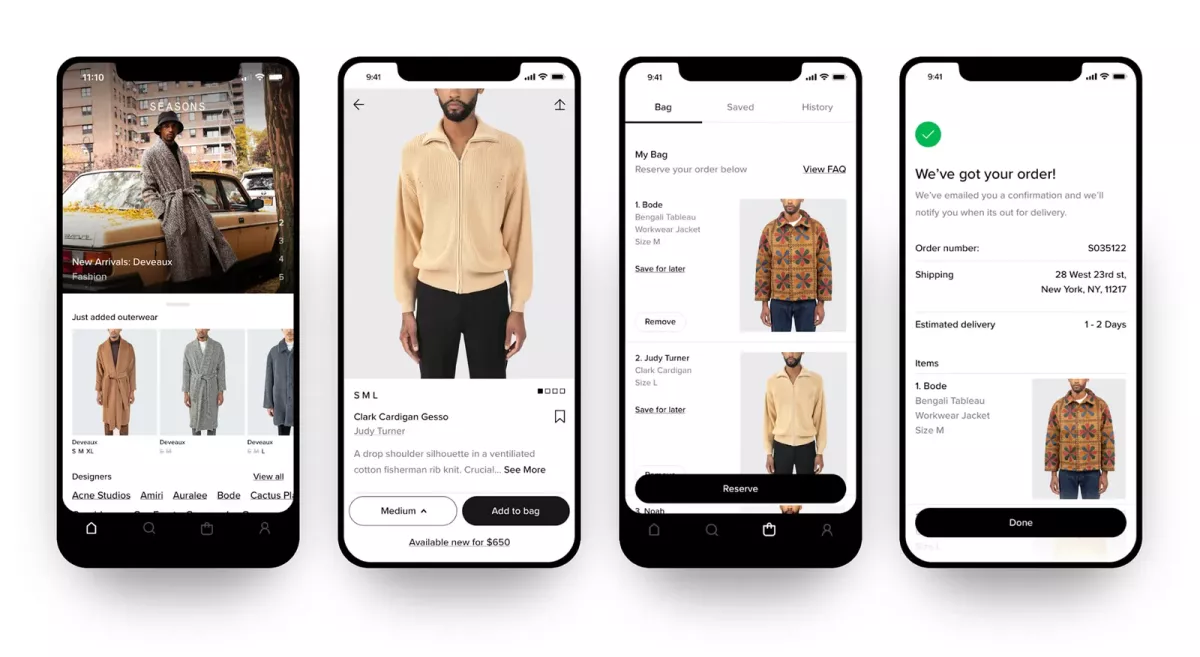Why renting clothes might not be all-encompassing solution to sustainable consumerism
Clothing rental services are booming across the globe thanks to consumers' perceiption of the service being a sustainable alternative to the highly wasteful "fast fashion" type of consumption. The environmental benefits of this retailing type may not be as clear-cut as they seem, though, as new research warns of a counter-productive behavioural phenomenon.
Clothing rentals, previously reserved for clothing made for special occasions, have become popular for everyday wear through platforms like Le Closet and Coucou. These services allow consumers to rent designer clothes for short periods, offering flexibility and variety without the commitment of ownership. They are marketed as a solution to reduce the environmental impact of textile production, one of the most polluting industries, by extending the lifespan of clothing and reducing the need for new garments.
However, as an article by The Conversation lays out, new research shows that clothing rentals can paradoxically increase consumption among certain user groups. While these services offer consumers the opportunity to refresh their wardrobe without owning more clothes, they can also lead to increased consumption through the rebound effect—a phenomenon where intended environmental gains are offset by behavioral responses that increase overall consumption.
The rebound effect occurs when sustainable practices, such as renting clothes, inadvertently encourage customers to increase consumption as the low cost and easy access to rented clothes may lead consumers to use the service more frequently or even purchase items they initially rented. Additionally, the money saved by renting instead of buying can be spent on other goods or services, such as electronics or travel, ultimately increasing the consumer’s ecological footprint.
In a study involving interviews with 31 users of Franco-Belgian clothing rental platforms and a survey of 499 users, researchers identified distinct consumer groups with varying susceptibility to rebound effects. According to the article, two groups, comprising about 25% of users, were particularly prone to increased consumption:
Thrill and Pleasure Seekers (7%): This group, largely motivated by novelty and hedonistic desires, often increases their overall consumption through frequent rentals. Predominantly young men, they are drawn to the variety and stimulation provided by clothing rental services, leading to behaviors that negate the environmental benefits of renting.
Contextually Apathetic Spenders (18%): Typically composed of young, single, urban men, this group is less motivated by pleasure but still exhibits paradoxical behavior. While they reduce clothing purchases by renting, they increase consumption in other categories, such as technology or travel, thereby offsetting the ecological advantages of renting.

The findings challenge the assumption that clothing rental services are inherently sustainable. To maximize their ecological potential and minimize rebound effects, the authors of the article call for rental companies and consumers to adopt more mindful practices, proposing the following:
Targeted Communication: Rental platforms should tailor their messaging to different consumer segments. For thrill-seekers, non-consumption-related incentives like games, competitions, or rewards can satisfy their desire for stimulation without encouraging overuse. For apathetic spenders, educational campaigns highlighting the negative consequences of excessive consumption may foster more thoughtful behavior.
Encouraging Responsible Rentals: Companies can promote long-term rentals of eco-designed garments, discourage frequent exchanges, and limit the number of items rented at once. Highlighting the ecological benefits of renting, such as the carbon footprint saved or the extended life of a garment, can shift focus from the hedonic aspects of the service to its environmental impact.
Collaborative Efforts: Rental companies should share data and collaborate to understand and mitigate the environmental impacts of their practices. A shared commitment to responsible consumption can help refine strategies and improve outcomes.
Consumers play a pivotal role in making clothing rentals more sustainable. Adopting a minimalist approach to fashion, prioritizing quality over quantity, and focusing on ethical, durable pieces can reduce the environmental burden. Before renting, consumers should consider whether they truly need the item and avoid impulse decisions that may lead to overconsumption. By rethinking consumption patterns and fostering collaboration, rental platforms can fulfill their promise of reducing fashion’s carbon footprint while meeting consumer needs responsibly.
By Nazrin Sadigova








